Related Research Articles
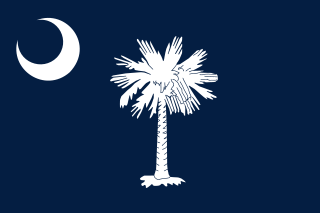
South Carolina is a state in the coastal Southeastern region of the United States. It is bordered to the north by North Carolina, to the southeast by the Atlantic Ocean, and to the southwest by Georgia across the Savannah River. South Carolina is the 40th most extensive and 23rd most populous U.S. state with a recorded population of 5,124,712 according to the 2020 census. In 2019, its GDP was $213.45 billion. South Carolina is composed of 46 counties. The capital is Columbia with a population of 137,300 in 2020; while its largest city is Charleston with a 2020 population of 150,277. The Greenville–Spartanburg-Anderson metropolitan area is the most populous in the state, with a 2020 population estimate of 1,455,892.

Clemson University is a public land-grant research university in Clemson, South Carolina. Founded in 1889, Clemson is the second-largest university by enrollment in South Carolina. For the fall 2019 semester, the university enrolled a total of 20,195 undergraduate students and 5,627 graduate students, and the student/faculty ratio was 18:1. Clemson's 1,400-acre campus is in the foothills of the Blue Ridge Mountains. The campus now borders Lake Hartwell, which was formed by the dam completed in 1962. The university manages the nearby 17,500-acre Clemson Experimental Forest that is used for research, education, and recreation.

The Medical University of South Carolina (MUSC) is a public medical school in Charleston, South Carolina. It opened in 1824 as a small private college aimed at training physicians and has since established hospitals and medical facilities across the state. It is one of the oldest continually operating schools of medicine in the United States and the oldest in the Deep South.

The Citadel, The Military College of South Carolina, commonly known simply as The Citadel, is a public senior military college in Charleston, South Carolina. Established in 1842, it is one of six senior military colleges in the United States. It has 18 academic departments divided into five schools offering 31 majors and 57 minors. The military program is made up of cadets pursuing bachelor's degrees who live on campus. The non-military programs offer 12 undergraduate degrees, 26 graduate degrees, as well as evening and online programs with seven online graduate degrees, three online undergraduate degrees, and three certificate programs.

Johnson Hagood Stadium, is an 11,500-seat football stadium, the home field of The Citadel Bulldogs football team, in Charleston, South Carolina, United States. The stadium is named in honor of Brigadier General Johnson Hagood, CSA, class of 1847, who commanded Confederate forces in Charleston during the Civil War and later served as Comptroller and Governor of South Carolina.

The Charleston School of Law (CSOL) is a private for-profit law school in Charleston, South Carolina. It was established in 2003 and accredited by the American Bar Association (ABA) in August 2011. The school was founded upon a principle of promoting public service by its students and graduates; each student must perform at least 50 hours of public service before graduation. According to the school's 2021 ABA-required disclosures, 85% of the Class of 2017 obtained full-time, long-term, JD-required employment nine months after graduation.
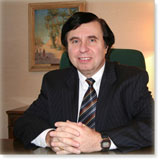
Jerry Zucker was an Israeli-born American businessman, investor, and philanthropist.

The Lowcountry Graduate Center (LGC) is a public higher education consortium located in North Charleston, South Carolina and established in 2001 to expand opportunities in graduate-level education to the Charleston, SC region.
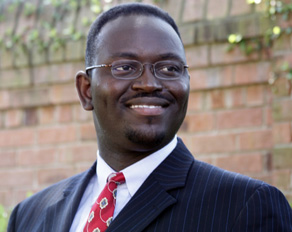
Clementa Carlos "Clem" Pinckney was an American politician and pastor who served as a Democratic member of the South Carolina Senate, representing the 45th District from 2000 until his death in 2015. He was previously a member of the South Carolina House of Representatives from 1997 through 2000.
Anita Zucker is an American businesswoman and philanthropist. She was the chair at the Hudson's Bay Company. Taking over after her husband's death, she is now the chairperson and chief executive officer (CEO) of The Intertech Group. She is the wealthiest person to reside in the state of South Carolina.
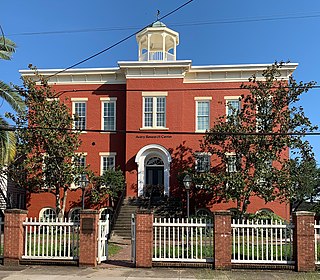
The Avery Research Center for African American History and Culture is a division of the College of Charleston library system. The center is located on the site of the former Avery Normal Institute in the Harleston village district at 125 Bull Street in Charleston, South Carolina. This historic secondary school trained Black students for professional careers and leadership roles, and served as a hub for Charleston’s African-American community from 1865 to 1954.
Coastal Community Foundation of South Carolina Inc. is a public 501(c)3 charity as classified by the US Internal Revenue Service. Since 2006 it has grown to be the largest grant-making entity in South Carolina serving donors and nonprofits in nine counties of the Lowcountry region. The foundation was created in 1974 with a gift of $9,000 from the Historic Rotary Club of Charleston, facilitated by Ted Stern, Howard Edwards, Mal Haven, and others. The foundation has grown rapidly since 2009, in some years faster than all but 3% of community foundations nationwide. Its 14 person staff manage investments of $220 million and distribute in excess of $20 million in grants to the community. Donors to 650+ funds direct grants to more than 700 nonprofit organizations each year. Since 2012 Coastal Community Foundation has received more donations than all other South Carolina nonprofits except for two, substantially larger, organizations.
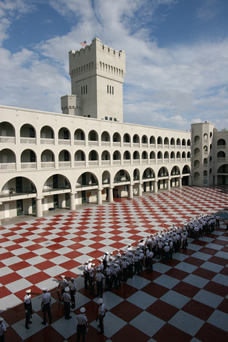
The History of The Citadel began in the early 1820s with the formation of a militia and state arsenal in response to an alleged slave revolt in 1822. By 1842 the arsenal grew into an academy, with the Legislature establishing it as the South Carolina Military Academy. Cadets played a key role in the Civil War, by firing upon a federal ship three months before the war began. Many Confederate officers attended the school. Renamed in 1910 as The Citadel, the school's academic reputation grew. After moving the campus near Hampton Park in 1922, the college has grown substantially. Sixteen years after legal segregation ended in public schools, the Citadel saw the graduation of its first Black student, Charles D. Foster. After an equally rocky journey forward, the Citadel graduated its first female Cadet in 1999. The school has produced many military officers, business, and political leaders throughout its history.

Laura Mary Bragg was an American museum director who became the first woman to run a publicly funded art museum in America when she was named the director of the Charleston Museum in 1920. She later directed the Berkshire Museum in Massachusetts and advised on the reorganization of the Valentine Museum in Virginia. She is also known for developing a widely copied form of traveling museum exhibition for schools called a "Bragg Box."

The Citadel School of Engineering is one of the five schools comprising The Citadel in Charleston, South Carolina. The school offers bachelor's and master's degrees as well as graduate certificates in several Engineering specialties. Having been established in 2002, The Citadel later reorganized its existing departments into five schools. Engineering has been a part of The Citadel's educational program since the founding of the school in 1842, and so ranks as the 5th oldest engineering program in the nation. The civil and mechanical engineering programs are housed in Letellier Hall while electrical engineering and engineering leadership are in Grimsley Hall.
The Baker School of Business, officially named the Tommy and Victoria Baker School of Business, is one of the five schools composing The Citadel in Charleston, South Carolina.

The Swain Family School of Science and Mathematics is one of the five schools comprising The Citadel in Charleston, South Carolina. The school offers bachelor's and master's degrees in a variety of fields, as well as minors and certificates. It was established in 2002 as The Citadel reorganized its existing departments into the five schools. On June 1, 2018, The Citadel announced the naming of the school for the Swain Family, in recognition of major gifts provided by brothers David C. Swain, Jr., Class of 1980, and his wife Mary, as well as Dr. Christopher C. Swain, Class of 1981, and his wife Debora.
The Citadel Graduate College is the non-residential academic program at The Citadel in Charleston, South Carolina. Offering a variety of undergraduate and graduate programs in a non-military environment, the college targets residents of the South Carolina Lowcountry and distance learning students. Classes are primarily offered online or at night, using the same faculty and classrooms as the cadet day program, but students at the Graduate College generally do not share classes with members of the South Carolina Corps of Cadets. Alternatively, students can attend programs at the Lowcountry Graduate Center in North Charleston, South Carolina or through recently established distance learning programs.
Millicent Ellison Brown is an American civil rights activist and educator best known for being one of the first people to racially integrate public schools in Charleston, South Carolina in 1963. She also founded the "Somebody Had to Do It" project.
Zucker Family Graduate Education Center is a renowned institution dedicated to providing exceptional graduate education and fostering academic excellence in various fields of study. This is one of the Clemson University campuses located in Charleston, the center has gained recognition for its innovative programs, accomplished faculty, and state-of-the-art facilities.
References
- ↑ "Citadel reorganizes departments into schools". The Citadel. November 21, 2002. Retrieved April 23, 2016.
- ↑ Amanda Kerr (April 5, 2015). "The Citadel poised to begin two multimillion dollar building projects". Post and Courier . Charleston, South Carolina. Retrieved May 1, 2016.
- ↑ Ashley Hefferman (November 11, 2014). "Zucker family donates $4M to The Citadel's School of Education". Charleston Business Journal. Charleston, South Carolina.
- ↑ "Citadel: $4M gift from Zucker supporting School of Education". Charleston, South Carolina: WCSC-TV. November 11, 2014. Retrieved April 27, 2016.
- ↑ Jennifer Berry Hawes (November 11, 2014). "Anita Zucker donates $4 million to The Citadel's education school". Post and Courier. Charleston, SC. Retrieved April 27, 2016.
- ↑ "The STEM Center of Excellence". Network of STEM Education Centers. Retrieved April 27, 2016.
- ↑ "The Citadel and the College of Charleston Expanding Education Offerings at the Lowcountry Graduate Center". Lowcountry Graduate Center. Retrieved April 27, 2016.
